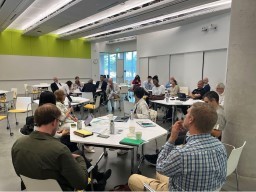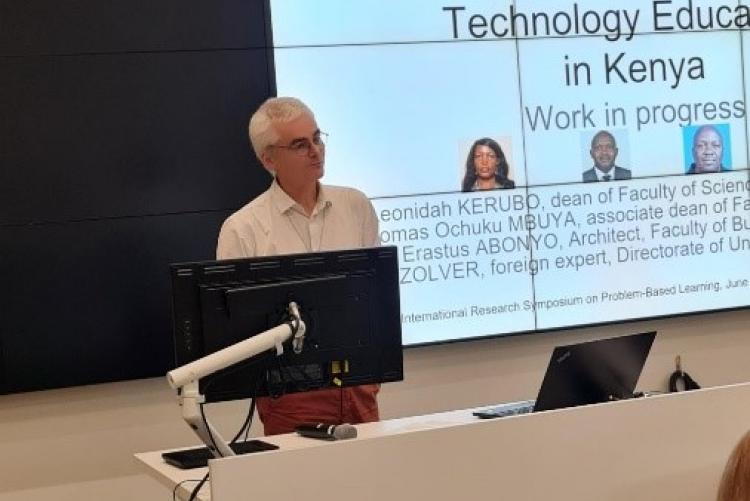Due to the complexity of global challenges (climate change, energy transition, exhaustion of resources, inequalities…) and the emergence of new disciplines (systems science, artificial intelligence, digitalisation, quantum technology…), the education of engineers, technologists and scientists is evolving fast. This is true not only in terms of content and knowledge to better understand the issues faced by societies, but also in terms of skills and competencies, on one hand, to better respond in multi-disciplinary and multi-cultural team projects, and in another hand, to be prepared for the future in a volatile, uncertain, complex and ambiguous world.
The Engineering and Science Complex (ESC) of the University of Nairobi (UoN) is a project that fits into this rapidly changing context. UoN has embarked on a strategy to transform its Faculty of Science and Technology (FoST) and Faculty of Engineering (FoE) to become a world-class innovative and entrepreneurial university. To achieve this, UoN is designing and building the ESC, a new centre for Education, Research and Innovation, financed by the French Agency for Development. UoN is also entering into a policy of academic cooperation with 5 French engineering schools (CentraleSupélec, ChimieParisTech PSL, AgroParisTech, Ecole des Ponts and Mines Paris PSL), and is rapidly developing linkages with businesses and industries.
UoN is part of this double international community, led by the University of Aalborg (the UNESCO chair university on PBL), the one of Education, Research and Innovation for engineers, technologists and scientists, and the one of the science of education applied to engineering and science training. A paper presenting the UoN project was prepared and submitted by the foreign expert at UoN, Prof Marc Zolver, the Dean of FoST, Prof. Leonidah Kerubo, the Associate Dean of FoE, Dr Thomas Ochuku, and Architect Erastus Abonyo. After acceptance, the paper has been presented in-person to the TEE-IRSPBL23 international conference hosted by MIT and Harvard SEAS.
The conference brought together over a hundred practitioners of engineering education and researchers in the science of education. Numerous projects and initiatives were presented and discussed, usually in the form of workshops and/or guided discussions, maximizing exchanges and interactions. The event not only provided an opportunity to present our Kenyan project but also to become a member of this network and establish links with its members from various universities around the world. Only 4 African universities were present: the University of Nairobi (Kenya), the University of Pretoria (South Africa), the University of Ibadan (Nigeria) and Ashesi University (Ghana). Other participants came from the Americas (Canada, United States, Colombia, Chile, Ecuador, Mexico), Europe (Denmark, Sweden, United Kingdom, Netherlands, Romania, Switzerland, Portugal), Asia (Singapore, Malaysia, Hong Kong, South Korea, India), the Middle East (Lebanon, Qatar) and Australia.
The next edition TEE-IRSPBL25 conference will be held in Pretoria, South Africa, in 2025, and UoN intends to present the progress of its project there.

- Log in to post comments

